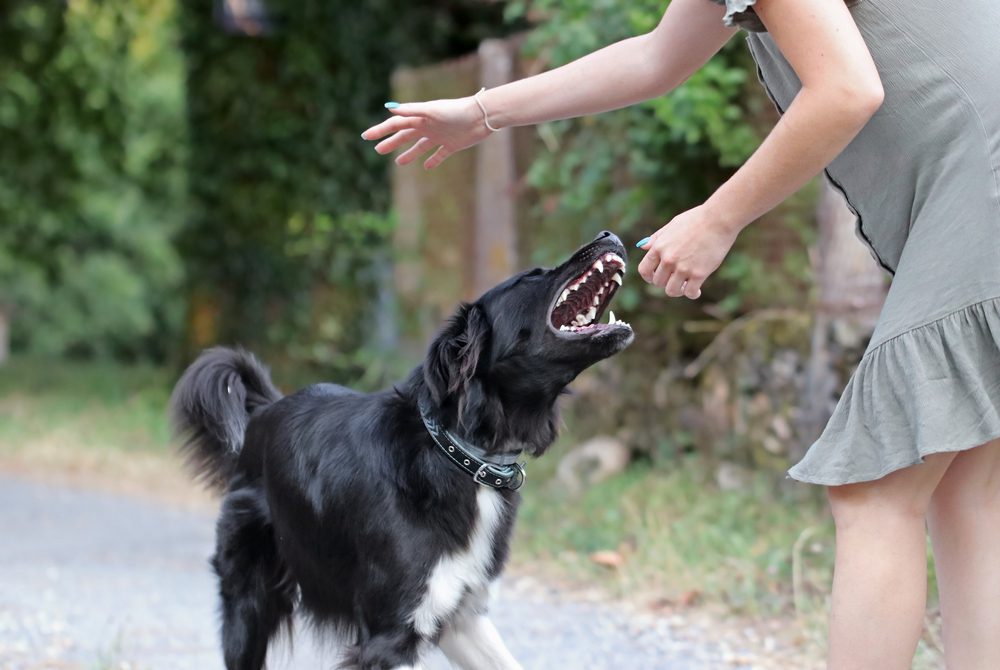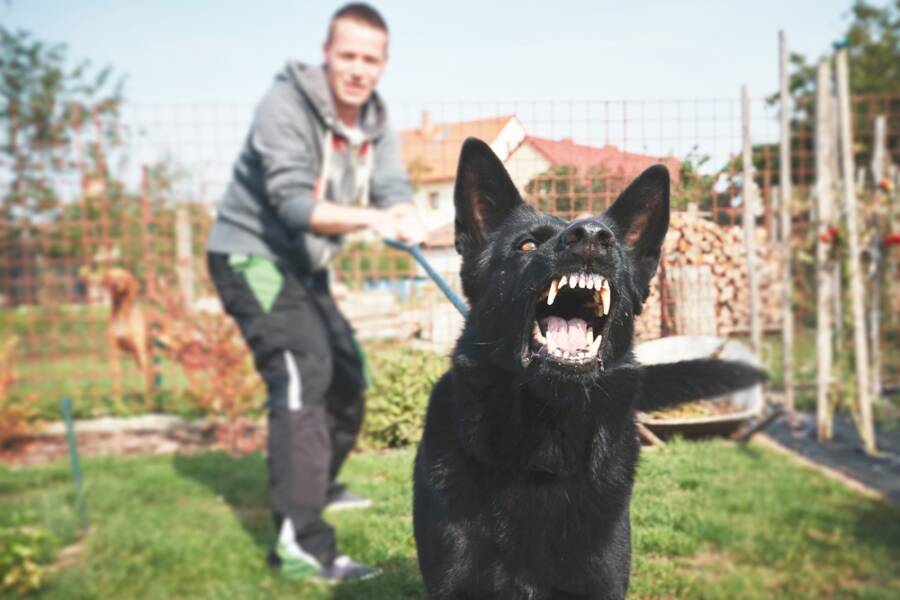Did a dog bite you?
If you have been bitten by a dog, it is very important to tend to the injury as fast as possible. The purpose is to reduce and even eliminate the risk of bacterial infection. You should also be able to assess how severe the wound is. In some cases, you will be able to administer first aid to yourself.
However, if the bite is deep, you might have to seek medical treatment. Whether the dog is yours or someone else’s, it is totally normal to feel shaken after experiencing such a traumatic event. If you need medical attention, you should call for help rather than drive yourself to the doctor or even the hospital. Here’s a list of steps you should take following a dog bite, and what you can do to prevent infection.

Ask about the dog’s vaccination history
The very first thing you should focus on after a dog bite is to ensure enough distance between yourself and the dog. That could further eliminate the chances that you might get bitten once more. Then, after you eliminate the immediate threat, it’s also important to establish if the dog has been inoculated against rabies.
If not, there’s a whole other process you need to adhere to in the following 24 hours. If the dog’s owner is in your vicinity, ask for the dog’s vaccination history. Also, you want to make sure you get the owner’s name, telephone number, and veterinarian’s contact information if you can, ask to see some kind of ID.
If the dog is alone and you had witnesses at the incident, ask them if they know the dog or where their owner lives. Naturally, it’s highly possible to be bitten by your own dog. Sometimes, it happens. That’s why you have to make sure you keep up with your dog’s rabies inoculations.
Administer first aid
The type of aid you should administer to your injury is generally determined by the severity of the bite. If your skin isn’t broken, simply wash the area with warm water and some soap. You also have the option of applying an antibacterial lotion to the area, just as a measure of precaution.
If, however, your skin is broken, make sure you wash the area with warm soap and water. Then, try to gently press on the wound to promote a small amount of bleeding. This will automatically help flush out the germs.
If the bite is already bleeding, just apply a clean cloth to the wound, then gently press down to stop the flow. Follow up with an application of antibacterial lotion and cover with a sterile bandage. As a general rule, all dog bite wounds, no matter how minor or major they are, should be closely monitored for signs of infections until they are fully healed.
That’s why we’d advise you to check the bite and see if it becomes red, swollen, warm, or tender to the touch. If the wound aggravates, you feel pain or you develop any kind of fever, you should see a doctor right away.
Treatment tips:
- wash the wound with some soap and warm water
- gently press a clean cloth over the wound to stop the flow of blood
- apply your antibacterial ointment of choice to the wound
- cover with a sterile bandage
- watch for signs of infection
- seek help if you think it’s infected or if you think you might have been exposed to rabies.
When it’s time to seek help
Did you know that around 1 to 5 dog bites require immediate medical treatment? We’d advise you to seek a doctor for a bite that is either caused by a dog with an unknown rabies vaccine history or even by a dog that has been acting erratically or seems to be sick.
Moreover, if you notice that the bite doesn’t stop bleeding, it causes you repetitive episodes of intense pain, or even worse, exposes bone, tendons, and muscles, then you should go straight to the emergency room.
If you notice that you are starting to lose your function, and all of a sudden you can’t bend your fingers anymore, or the wound looks red, swollen, inflamed, or leaks pus and fluid, then you shouldn’t wait any longer and head straight to the doctor’s office.
Possible complications from a dog bite
Dog bites can cause many health complications. Some of them include infections, rabies, nerve, or even muscle damage.
Infection
Bacteria can live a long life in a dog’s mouth, including staphylococcus, Pasteurella, capnocytophaga. At times, dogs could also carry MRSA, but there aren’t any current reports of it being automatically transmitted via dog bites.
These germs can also cause bacterial infections, especially if the dog bites the skin. The risk of suffering from an infection is even higher in those with weakened immune systems, as well as people with diabetes. If you have been bitten by a dog and you notice such signs of infection, we’d advise you to go to a doctor as soon as possible.
Nerve and muscle damage
A deep bite might cause damage to the nerves, muscles, as well as blood vessels under the skin. This can also take places if the wound seems to be too small to notice, like from puncture marks.
Broken bones
A bite from a bigger dog could result in a broken, splintered, and even fractured bone, especially when it comes to legs, feet, or even hands. You should always seek emergency medical help if you suspect the dog broke your bone while biting you.

Rabies
Rabies is a very serious viral condition that mainly affects the central nervous system. If left untreated, it can easily lead to death within a couple of days of infection. You should seek immediate medical attention if you have been attacked by a dog and you’re not sure if they even have a vaccination history or even worse, you know very well that they haven’t been up-to-date on their rabies vaccination.
Tetanus
Tetanus is yet another bacterial disease. It’s quite uncommon in the United States since vaccines are routinely provided to children. Adults should get their tetanus booster shot every year. I know what you’re thinking: who the hell prioritizes their tetanus booster shot? Well, it all makes sense the minute you’ve been attacked by a dog or you stepped into a nail…
Scarring
If a dog bite is quite aggressive and tears the skin, it might cause scarring. In plenty of instances, the appearance of mild scarring could lessen over time. Severe scarring, especially those that occur in visible areas like the face, can be easily reduced through medical techniques like grafting and plastic surgery.
Death
The number of deaths caused by dog bites in the United States on a yearly basis is, thankfully, very low. When they do take place, around 70% of deaths that are related to dog bites happen to children younger than 10 years old, which is very tragic.
Should you get a rabies shot?
If you have been bitten by a dog that seems to present signs of rabies, like acting erratically or foaming at the mouth, you should get a rabies vaccine, yes. Rabies can be a fatal condition, which is 100 percent preventable when immediate medical treatment is offered. While rabies in humans is quite rare, in the United States isn’t generally transmitted by dogs, thanks to all the ongoing prevention programs.
If you are the proud owner of a dog and you are afraid your dog might turn aggressive all of a sudden, make sure you get a sturdy rope leash to protect yourself and others!
If you found this article interesting, we also recommend checking: “I’m a Vet and This Dog Breed Scares the Sh** Out Of Me!”











